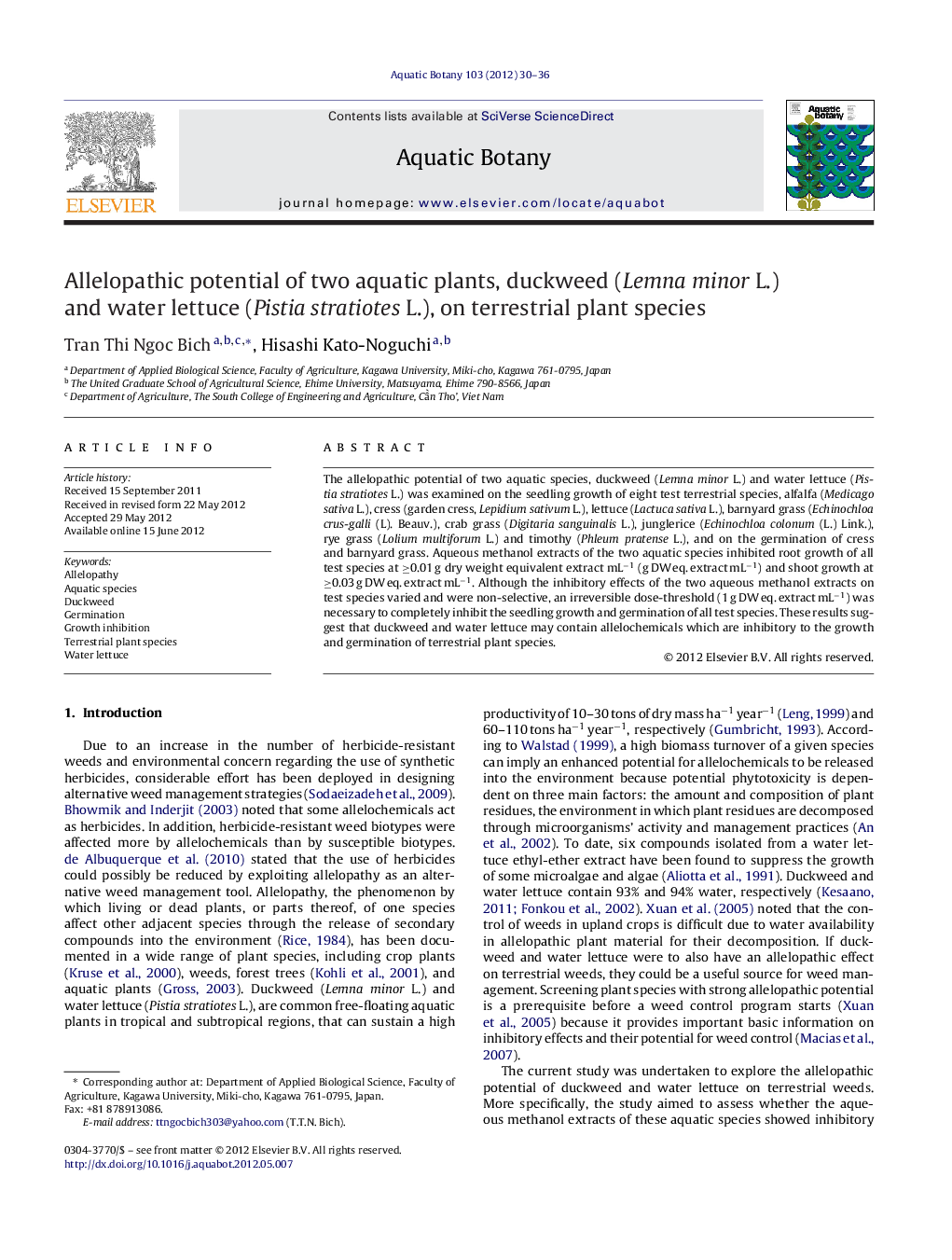| Article ID | Journal | Published Year | Pages | File Type |
|---|---|---|---|---|
| 4527999 | Aquatic Botany | 2012 | 7 Pages |
The allelopathic potential of two aquatic species, duckweed (Lemna minor L.) and water lettuce (Pistia stratiotes L.) was examined on the seedling growth of eight test terrestrial species, alfalfa (Medicago sativa L.), cress (garden cress, Lepidium sativum L.), lettuce (Lactuca sativa L.), barnyard grass (Echinochloa crus-galli (L). Beauv.), crab grass (Digitaria sanguinalis L.), junglerice (Echinochloa colonum (L.) Link.), rye grass (Lolium multiforum L.) and timothy (Phleum pratense L.), and on the germination of cress and barnyard grass. Aqueous methanol extracts of the two aquatic species inhibited root growth of all test species at ≥0.01 g dry weight equivalent extract mL−1 (g DW eq. extract mL−1) and shoot growth at ≥0.03 g DW eq. extract mL−1. Although the inhibitory effects of the two aqueous methanol extracts on test species varied and were non-selective, an irreversible dose-threshold (1 g DW eq. extract mL−1) was necessary to completely inhibit the seedling growth and germination of all test species. These results suggest that duckweed and water lettuce may contain allelochemicals which are inhibitory to the growth and germination of terrestrial plant species.
► We assessed possible allelopathy of duckweed (Lemna minor L.) and water lettuce (Pistia stratiotes L.) on terrestrial plants. ► These aquatic plants showed allelopathic potential on both monocots and dicots. ► The inhibition ability of aqueous methanol extracts was concentration-dependent. ► Aquatic plant extracts completely inhibited growth and germination of all weeds. ► Barnyard grass (Echinochloa crus-galli (L). Beauv.) was controlled; this weed is rapidly developing herbicide resistance.
